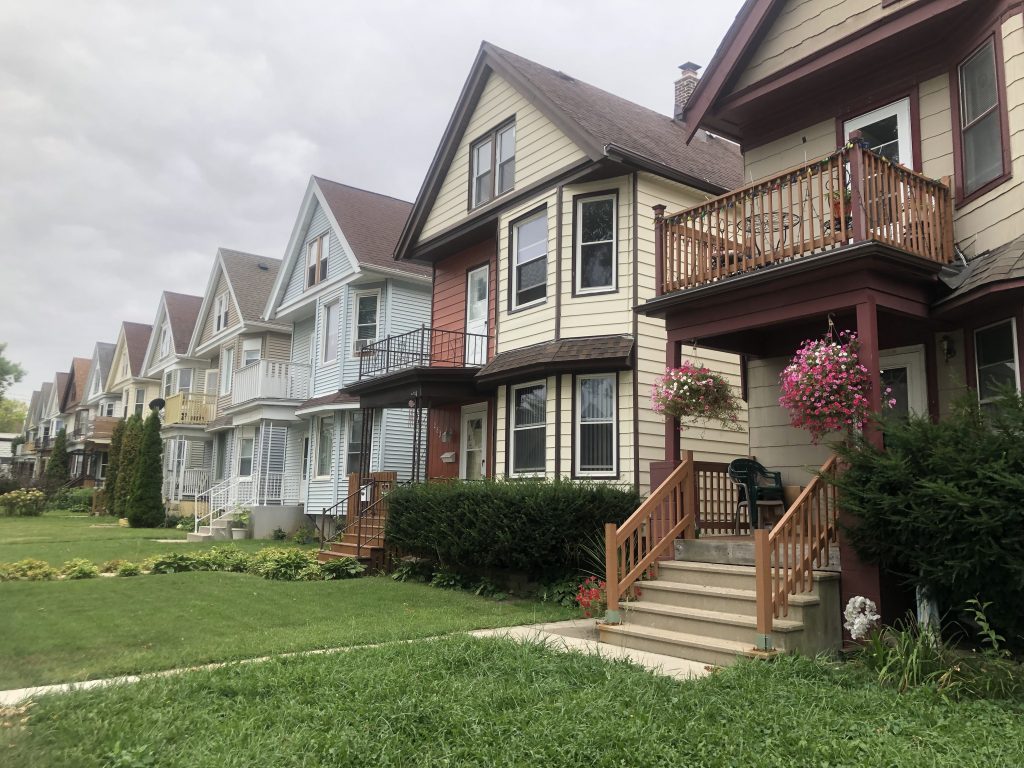Community Land Trust Comes To Town
Nonprofit creates affordable housing and equity through land leases, initial subsidies.
A new model of homeownership aims to provide affordable housing and stabilize neighborhoods in Milwaukee.
The Milwaukee Community Land Trust (MCLT) aims to make houses it invests in permanently affordable while still building wealth for the families that own the homes.
The program, versions of which are in place in more than 200 other locations in the nation, works by splitting ownership of the underlying land and house.
A house would be sold at a below-market rate to a low-income family, with the community land trust maintaining ownership of the land and leasing it to the homeowner. A public or private subsidy would be used to fill the gap to acquire and renovate the home, with the purchasing family agreeing that any future sale would take place at a reduced price.
Upon a future sale, the seller would be allowed to realize a 1.25% per year appreciation plus the portion of the mortgage equity they have paid down.
In a provided example, the MCLT would buy and rehabilitate a house for $110,000 and sell it to a family for $80,000. The structure would create a $650 per month payment, suitable for a minimum annual income of $27,900.
MCLT executive director Lamont Davis and Department of City Development housing specialist Maria Prioletta initially presented the concept to the council’s Community and Economic Development Committee on February 17.
“This is not a substitute for conventional homeownership,” said Prioletta. She noted the department has other programs to help those individuals, including its downpayment assistance program. She said the MCLT program could serve as a “springboard” for households to get to conventional ownership.
Davis said his organization is pursuing families or individuals with incomes at or near 40% of the Milwaukee County median income. The qualifying individuals and households would have incomes of approximately $33,500, not enough to build wealth under standard housing circumstances. “What we do with our subsidy is we make the house affordable,” said Davis.
Four of the first houses MCLT is targeting are in the Lindsay Heights neighborhood on the city’s North Side and one is in Muskego Way on the South Side. The organization is partnering with VIA CDC, which already operates its own turnkey renovation program, to improve the houses.
Alderman Russell W. Stamper, II also backed the program, but expressed concerns about the source of city funds. In February he asked for the proposal to be held to allow a series of community meetings.
Tuesday morning, Stamper said the community meetings went well and encouraged his colleagues to adopt the proposal.
“In addition to this $200,000 there will be funding allocated from [Zilber Family Foundation] and [LISC Milwaukee],” said Stamper. He said he was encouraged that the board would be a mix of neighborhood residents, MCLT owners and public representatives.
But the issue of where exactly the $200,000 would come from drew confusion. Stamper, as he had in February, insisted the funding would come from the council’s second and final $197 million tranche of American Rescue Plan Act money.
City Clerk Jim Owczarski said that wasn’t explicitly in the resolution. “It doesn’t speak to ARPA at all,” said the clerk.
A substitute amendment was ultimately authored that requires DCD to find the funding from its first tranche ARPA allocation. The department originally received $4.5 million to expand its existing housing programs and $15 million to rehabilitate and sell 150 houses acquired via property-tax foreclosure.
DCD had originally sought to use a $3 million fund Stamper created with a 2021 budget amendment. Known formally as the Partnerships in Affordable Ownership Housing and Alternatives to Home Ownership Initiative, the fund has yet to be used. At the time of its 2020 approval, he said it could be leveraged to get more funding from private partners to create housing through a co-op or land trust housing model.
But in February, and again Tuesday, Stamper said he didn’t want to use that money for the pilot.
“This is $3 million to get leverage to get more funds. This is a separate piece of operations money for something greater,” said Stamper in February. The alderman has claimed that the fund could yield up to $35 million in private support for future investments. But for now, it sits unused.
MCLT’s board is led by president Rusty Borkin, vice president Teresa Thomas-Boyd and secretary William Kopka. Davis was hired in October. Board members are elected to three-year terms by land trust members. Membership is available to any Milwaukee adult for $1.
More details on the land trust are available on its website, MilwaukeeCLT.org.
Political Contributions Tracker
Displaying political contributions between people mentioned in this story. Learn more.
Eyes on Milwaukee
-
Church, Cupid Partner On Affordable Housing
 Dec 4th, 2023 by Jeramey Jannene
Dec 4th, 2023 by Jeramey Jannene
-
Downtown Building Sells For Nearly Twice Its Assessed Value
 Nov 12th, 2023 by Jeramey Jannene
Nov 12th, 2023 by Jeramey Jannene
-
Immigration Office Moving To 310W Building
 Oct 25th, 2023 by Jeramey Jannene
Oct 25th, 2023 by Jeramey Jannene


















